In part two of a two-part interview, Buzgalin continues his analysis of Russian attitudes towards Ukraine. Aleksandr Buzgalin joins Paul Jay on theAnalysis.news.
TRANSCRIPT:
Paul Jay
Welcome back to theAnalysis.news. We’ll be back in just a few seconds with Aleksandr Buzgalin, and we’re going to continue our discussion about Russia, Ukraine, make Russia great again, and even more dangerous, make the United States great again. We’ll be back in just a few seconds.
Now joining us again is Aleksandr Buzgalin. He’s a Professor and Director of the Center of Modern Marxist Studies at Moscow State University. He’s chief editor of the journal Alternatives, an academic journal dealing with problems in political economy, and he’s the Vice President of the World Political Economy Association. Thanks for joining us, Aleksandr.
Aleksandr Buzgalin
Thank you.
Paul Jay
All these weapons that are being produced, whether they’re in Russia or the United States or elsewhere, but particularly between the U.S. and Russia, if I understand it correctly. I’ve been working with Daniel Ellsberg on this documentary film, and it’s all irrelevant because the real power is in the submarines. So it doesn’t matter how many missiles get fired at Russia or how many missiles Russia fires back from the ground. It doesn’t matter in the sense they both have the submarine capability of wiping out the other country. So the deterrence is already there.
So the justification to spend so much more money on ICBMs [intercontinental ballistic missile], and all these fancy new hyper-sonic missiles, and all the rest, if I understand it correctly, is mostly all bullshit because whatever fires one way or the other, it’s the subs that are going to finish it off. And they’ll finish it off in a way that there won’t be any Russia, there won’t be any United States, and there won’t be any humans because there will be nuclear winter, and it will all be over. So it seems like a great big piece of theatre to spend and make incredible amounts of money.
Aleksandr Buzgalin
Yes, I’m not a specialist in military questions. I’m sorry, but it was [Nikita] Khrushchev in the early 1960s who said, “we have opportunities to destroy the United States completely.” Do you know how? We will make explosives out of our nuclear weapons in Russia, and we’ll disappear. The Earth will disappear.
Paul Jay
It’s true.
Aleksandr Buzgalin
It doesn’t matter where all these nuclear weapons will explode. The result will be the same.
Paul Jay
There’s a scene in a movie called Blazing Saddles where the Sheriff, the black Sheriff, has a white prisoner, and the townspeople are coming to get the white prisoner away because it’s a black Sheriff. Then the Sheriff puts a gun up to his own head, and he says, “if you take this guy away from me, I’m going to shoot myself,” and they don’t know what to do with it. That’s kind of what the reality is; either country blows up, we’re all gone.
Aleksandr Buzgalin
Yes, by the way, I think it’s true now for China and maybe not only them. So, that’s why I think we must distinguish, it’s very important, and I want to stress this, I don’t know many times; first, there are people in the United States, and there are people in Russia. There is a government of the United States, and there is a government of Russia. There is big business in the United States and big business in Russia. Interests of big business, top bureaucracy and people inside Russia are much stronger than between countries.
It’s a very old slogan of internationalism, of working people, but it’s true. It’s important for us, even for Left journalists, Left professors, Left militants, ordinary people, not to follow propagandists’ attempt to set normal standards. When everybody says Russia is against the United States, the United States is against Russia, it’s, unfortunately, the rule in our country. The U.S. is an aggressive country, but I’m not sure that U.S. citizens want to go to Russia with guns to kill Russians. I’m not sure. Honestly, I don’t think so.
Paul Jay
Well, I think the answer is no. In fact, the Americans made it very clear they don’t want to send a single soldier to actually fight in Ukraine. Americans would not support that, but I have to say there’s a lot of American politics— [crosstalk 00:05:06]
Aleksandr Buzgalin
—to have a wish to start war. We are not so crazy.
Paul Jay
Well, there are American politicians that are urging the Ukrainians to fight the Russians. They want to send small arms. Both in the Democratic Party and Republican Party going on television demanding that [Joe] Biden sends more small arms to Ukrainians so Ukrainians can wage guerrilla war against these invading Russians. I don’t know if I’ve seen anything more disgusting than wanting to turn Ukraine into a civil war, like in Syria.
Aleksandr Buzgalin
Yeah, okay, that’s another story. Let’s talk about the government of the United States who wants to do this and that, and the Russian government wants to do this —
Paul Jay
Well, let me ask you the other part of the question I had earlier. I won’t say [Vladimir] Putin because you’re right. We need to say the Russian State, the oligarchy and the Russian bureaucrats. Do they want a greater Russia? Is that part of what’s motivating this historic Russian Empire? And let me just add. Well, so what if they do? It’s not like the Americans don’t want the American Empire, but at any rate, is that part of what’s motivating here, this sort of nationalistic, historic feeling that Russia deserves to be a greater power with a larger sphere of influence?
Aleksandr Buzgalin
It’s a very difficult question and a very important question. I will say that first of all, here we have, even among Russian people, not a big, but an influential part who wants to rebuild the Russian Empire. It’s true. We have these pro-supporters of big Russia, the same big Soviet Union or something like that. We have the strength. We have the strength in official propaganda. We have the strength in bureaucratic circles and even inside business circles, and this is a big problem for us. This great power of chauvinism exists.
But there is a difference. There is a difference between a man who wants to have beautiful girls and maybe not only one, but three or four, and the man who makes violence in the street against women. It’s different, and intention is one thing, real action is something absolutely not. I think that now in real politics, in real political intentions, Russian officials, except maybe a few crazy people who are in every government, don’t want to start any aggressive actions against other countries around Russia.
I know that there are two very important aspects of this problem. Maybe counter-arguments people can argue. Look, and what about Crimea? Look, and what about Donbas, [inaudible 00:08:40]? So again, pre-history. Even not pre-history that it was part of Russia. Okay, let’s forget it. Yes, it’s true, and I want to stress again, really, in practice, Russian officials are adequate enough not to have such intentions. I don’t think that they really plan to start war.
I stressed during our previous dialogue that in Russia, people definitely don’t want war. And this is a very important internal intention, feeling even something in the soul. We have had terrible, bloody wars in the past that, for our people, it’s something enormous to start again. Of course, the government is not people, but it remains necessary to understand that if the government starts any war, the government will not have support from inside, or they will commit suicide, as I said before.
About great power, chauvinism, and intentions. Unfortunately, these nationalist, expansionist threats are typical for nearly all national capitalist States, which have a relatively strong army and which does not have a very good economic and social situation. Because nationalism is a typical means to undermine any social protest, any struggle for equality, any struggle for real democracy and so on. I mentioned this is a very old slogan. We must be together because we have a terrible enemy, and if we fight against the enemy, we will go forward. Tomorrow we will be a huge country. We will have a lot of resources, everybody will be rich, and we can solve all of our problems through expansion. There are a lot of these expansionist ideas even in Poland. I’m not speaking about big countries.
This aggressive military model of behaviour, slogans, ideology, propaganda, unfortunately, is typical for capitalist countries with strong states, strong bureaucracy, and big internal contradictions. But again, propaganda it’s one thing, real political action is another. As I said from a pragmatic point of view, both tactic and strategic, a Russian war is not a good idea.
There are some important aspects, very important aspects. Why are there not only artificially nationalistic but real foundations for the idea of so-called big Russia? This is pre-history.
You know, it’s strange, but when I was in Austria, a small, very Democratic country in the centre of Europe. They had a lot of museums about their Chancellor of Austria when it was the Austrian-Hungarian Empire, a huge Empire in the centre of Europe. They have enormous nostalgia about this guy. Like in Russia, but with [Joseph] Stalin, by the way. It’s very strange, but it’s true. I was shocked when I saw all the things in Austria. And this is Austria, small, very beautiful, Democratic, social, more or less capitalist culture. What about other countries?
Here we have, and this is why I mentioned this because it was pre-history. In Russia, pre-history is even stronger. We were together with many, now independent countries for ages and ages. We were with Ukraine from 1641. With Belarus, I think there were different changes but from the 16th-17th century. For Caucasus it was from the 19th century, and Central Asia is the same.
It’s especially important that in the Soviet Union, we had a situation very different from the situation with the Empire, which had colonies where people were oppressed, poor, etc. It was more or less equal development. Baltic republics were richer than central Russia. Ukraine was richer than central Russia. Georgia was richer than central Russia. Now Baltic republics are richer than Russia. Georgia has less income and big economic problems. Ukraine is the same. Belarus is more or less like Russia. And other countries, except Kazakhstan, which is very friendly to Russia, more or less friendly to Russia. Other countries are in terrible situations after the collapse of the Soviet Union.
There are a lot of people from these countries who are coming to Russia and are coming to these countries, and they dream about reunification. Not about big Russia, but the reunification of the Soviet Union. There is a real basis for the growth of the Soviet Union. Not because it was a Russian State, not because even though Russian language, it was international language, but it is not the main. Not because of our common culture— because wonderful singers, filmmakers, and scholars from very small Estonia— it’s only 1 million people. It was a very small part, less than 1% of the Soviet Union. It had fantastic artists who were extremely famous in all of the countries and all of the Soviet Union. People were thinking that they are our singers. Not Estonian, not Russian, not Belarus, not Ukrainian. The same with Ukrainians. The same with [foreign language 00:15:31] writer from Kirghizia, one of the best or maybe the best writer of the 20th century. He was Russian? No. Was he Kurgis? No. Was he Uzbekistanian? No. He was Soviet. It was a real unity of economy, technologies, education. It was the same wage everywhere. Absolutely the same wage for a doctor, teacher, broker, engineer, student, scholarship, everywhere, absolutely cool. In every town, every village, every city of the country. Can you imagine? And it was for 70 years. So people remember this, and they don’t want to have Russia. They want to have the Soviet Union. Of course, the Soviet Union had a lot of negative features.
So coming back, it’s very important to remember this. This is not nostalgia. In Italy, during the 15th-16th century, it was Renaissance. It was not nostalgia about the Greek’s past or Rome’s past, antique past; it was Renaissance. So now there is a very big intention in Ukraine, Russia, Georgia, and Central Asia for a Renaissance of a socialist country. We must withdraw lessons from the collapse of the Soviet Union and have the intention to create new and better without these terrible mistakes and even crimes. Common space is very strong, and this is not only for the Soviet Union. This is also for friendship with China, with Vietnam, with Cuba, which is far away, and which was very much our own country.
The [inaudible 00:17:58] in Cuba was part of the life of my generation when we were teenagers. The catastrophe with Salvador Allende in Chile, during the 1970s when a fascist coup took place in this country, and the Union; it was [inaudible 00:18:15].
Paul Jay
But what you’re talking about is an aspiration. You’re talking about the aspiration of the people. This kind of new rebirth is not the aspiration of the Russian oligarchy or bureaucrats. Who are they? Talk about who are these Russian oligarchs, who I would guess, like the Americans, as powerful as the American State is, the American billionaires are the ones that really have the levers of power. Is it not the same in Russia? As powerful as the bureaucrats are, the oligarchs are at least as powerful. What do they want out of this situation?
Aleksandr Buzgalin
First of all, they are divided—so different tents inside bureaucrats, top bureaucrats. I’m not talking about, I don’t know, ordinary people working in small towns. So top bureaucrats and big business bosses, they’re very integrated. As I said, we had state corporations which are working for the top managers of these corporations. So, in reality, they are private but form a property State. We have vice versa, some private corporations, but real control of the bureaucrats is very strong, and they are working for top bureaucrats more than for their own interests. So in Russia, it’s very integrated. It’s mixed. And formal statistics about State and private property says nothing, or nearly nothing.
So they are divided, these two people, [foreign language 00:19:59] and [foreign language 00:19:59], the new elite. We have pro-Western bureaucrats, for example, typically finance, economic ministers, central bank leaders; they are looking forward in the direction of neoliberal standards, monetarist model of economic theory, monetary model of economic policy, and so on. So we are much more neoliberal than the U.S. Finance Minister, I think, maybe I’m wrong. I don’t know about the U.S..
So we have so-called Siloviki bureaucrats who deal with the military-industrial complex, defence Ministry, internal affairs, [foreign language 00:21:01] former KGB, and so on. They are more oriented on strong State stability, and partly these bureaucrats are real Patriots, and part of them are socially oriented. It’s one of the paradoxes. We have these strong military people, Generals in different parts of the structures who are thinking about the necessity to have more social justice, free-of-charge education, etc.. They like the Communist Party of the Russian Federation and the leaders of this party like them. So it’s not simple. They are paternalistic bureaucrats. This is another part, semi-criminals who want to take as much money as possible and went to the
[inaudible 00:22:01 Islands, absolutely cynical without any particular interest except money, and that’s it.
We have something like a result out of this struggle. And the result is the development of a Russian system where we have shadow state regulation. Real formal state regulation is nearly absent. We don’t have a plan, even such a plan as it was in France, for example, when it was rebuilt, France in the ’50s and ’60s or like in South Korea. Of course, we don’t have a plan like in China. We have shadow state regulation which is oriented on the growth of power, bureaucrats growth of the power of oligarchs and money, of oligarchs and property of both.
Also, they want to have stability in the country to save their power, money, and property. If they want to have expansion outside, if they can receive this without victims, without risk in the present, I think they would say yes. But to start any real active actions— it was only one time with Crimea, I said, and there was not an artificial basis for this. Now there is another problem. I go to a concrete example, it’s important, and it’s Donbas.
Paul Jay
This is the Eastern section of Ukraine that’s mostly Russian-speaking.
Aleksandr Buzgalin
Yes, I will explain now. I will not talk more about Crimea because we had a long talk about this. I don’t want to repeat it. For Donbas, it’s a little bit of another story. So Donbas became part of Ukraine after 300 years of life inside Russia. In the late ’20s, the 1920s, it became a formal part of Ukraine inside the Soviet Union. And there were no changes; there were some formal announcements to the top buildings of top officials and nothing else. They have the Russian language, Russian education, and 90% of the population were either Russians or Russian-speaking people from other republics and other nations.
The Donbas’ region has the coal industry, the iron industry, the steel industry, and manufacturing very big stock in enterprises, and it’s a big part of the military-industrial complex. During market reforms, really the capitalist restoration, this industry was partly destroyed. So when, in 2014, Maidan came, and very strong changes started. It was a big conflict between both oligarchs of Kyiv, the capital of Ukraine and oligarchs of Donbas. They had very contradictory economic interests.
Paul Jay
Just quickly, 2014 is when a government in Kyiv, which was essentially more sympathetic to the Russians, gets overturned, and you get a very pro-Western government.
Aleksandr Buzgalin
It was also very negative reaction of ordinary people because of three aspects. First, Ukrainization. It’s difficult to switch to another language, another education, another standard and so on. You are like a person who cannot talk. It’s like saying, tomorrow Spanish is the main language in the United States. For schools in the United States, not in the South-West but in the central United States. Everybody will say you’re crazy. Yes? The same was for Donbas people. They were against it. Also, they were against very big growth and radicalization of semi-fascist, pro-fascist and directly fascist organizations in Kyiv and Western Ukraine.
These Bandera organizations became, by the way, the main force who attacked in Donbas. Donbas had a real uprising of ordinary people partly supported by oligarchs. Still, oligarchs were not against, not completely pro; they were in-between because they had the resources. They did not fight against it. The majority of the population, including police, including the native KGB, decided that we would create our own State.
They didn’t want to be part of Russia. They said we want to have our State. We don’t want to be under Kyiv with semi-fascist, with terrible Ukrainian nationalism, and with terrible anti-Russian propaganda. For us, Russian history is something stupid. We want to be independent. The next day there was an attack on Ukraine. Firstly it was internal troops, then it was a lot of these Bandera organizations, and they were very brutal. Then it became the army who came. Of course, it was war in the territory of Donbas, a war against people who partly had some military preparations like police officers and so on. Partly we had people from the Ukrainian Army in Donbas, but the majority were ordinary men and even women who were not soldiers, who were not officers. They organized and struggled.
Ukraine used heavy weapons, tanks, special rocket systems, south of, I don’t know, a lot of rockets are coming in one minute. Artillery, airplanes, cities were destroyed. A lot of victims, hundreds were killed. I think, thousands of people were killed, including kids and elder people and so on and so forth. Then the real attack against Ukraine started, but it was not an attack on the territory of Ukraine, it was an attack against Ukrainian troops who came to Donbas, and they mainly liberated the Donbas region in general. If it was Russian armaments, officially not, really, honestly, I think a lot of people came voluntarily, including officers, soldiers and so on. They voluntarily went to Donbas. I know many of my friends who wanted to go to Donbas, and some went to Donbas. They were young professors, teachers, doctors. Some of them were in the army.
In the past, for the Soviet Union, it was an obligation for everybody. I also had some experience as [foreign language 00:30:02], of course very bad [foreign language 00:30:04]. They went to Donbas, by the way, we had people from different caucus countries, we had people from Central Asia, we had people from the United States, from Europe and Donbas who were together with, I wanted to say Ukrainians, but they were not Ukrainians the Donbas people of different nationalities. It was a really big war, now for them to be part of Ukraine, they’re simply afraid, they’re afraid of repressions and Ukrainian leaders not officially, but I said many times that there would be no excuse for people who were killers, as they say.
Paul Jay
In the Minsk agreement that was negotiated after the fighting broke out, the Ukrainian government was supposed to allow Donbas autonomy, but there’s an accusation or allegation that the Ukrainian government has not lived up to the Minsk agreement.
Aleksandr Buzgalin
Yes, so the Minsk agreement was compromised, and Donbas people decided that it’s better to have bad peace than good war. It was a bad idea because, really, I said in Odesa, it was mass-terror against state union leaders in the House of State unions. A lot of people fought in Odesa; it’s necessary to explain the story maybe one time on your channel. I’m not a big specialist, but I can invite people who will explain all this. A very terrible story, which was initiated by right-wing aggressive guys from central and Western Ukraine in Odesa, south of Ukraine. Very Russian, by the way. It’s a very Jewish city.
So that’s why there is this pre-history. In Russia, there are a lot of people, not only military people but ordinary people, who think that we must protect people in Donbas because they are in a terrible situation. Of course, Russia is not an angel and Russian government and oligarch especially. There is competition between Donbas oligarchs producing steel equipment coal and Russian oligarchs producing the same. Economic competition, economics stuff.
That’s why the Russian government, Russian business, could make big investments in Donbas, support education, support health care. Something was done, but typically it was humanitarian assistance, which was good. Definitely, it was necessary not to bring food, but it was necessary to create good industry and good agriculture in this region.
Paul Jay
Okay, we only have a few minutes left, and we could do many more segments, and we will but let me just ask a question, just to end the Donbas story. What do you think should be the solution here? In dealing with Donbas Ukraine? What should be the solution?
Aleksandr Buzgalin
I have one principle, which is, I will say honestly, Lenin’s principle. Every nation has a right to self-determination and the creation of its own State if they want to have this State. Of course, we, as Marxists, can say that it will not be profitable for you if you make this State. It will be profitable for business or vice versa. If you create this State, it will be profitable for people. It will not be profitable for oligarchs, bureaucrats and so on of the State where you were before. So I think that if people want to have their own State, they can have the State.
In Donbas, there are a lot of specific features, language, history, traditions and so on to be an independent state. This State can be and must be independent, not a part of Russia, not a part of NATO, not a part of Ukraine and has an open border. I hope there is no aggression at the border with Ukraine and with Russia because it is very integrated with the Ukrainian territory and with the Ukrainian people and culture and with the Russian culture and people.
Really my dream is to have an open border and no struggle, but peace between Ukrainian Peoples and their different nations in Ukraine. Russian Peoples because there are a lot of different nations in Russia, and we will live together, especially in the Soviet Union, without contradictions. It was contradictions between bureaucrats. It was contradictions between our people and our bureaucrats in both countries and central bureaucrats, but not between Ukrainians and Russians. So that’s why it is, I think, the only solution really is minimum Democratic social reforms as maximum socialist. This is a strategic solution, tactic solution, referendum in Donbas and let them do what they want and not make any aggression’s from one or another side. [crosstalk 00:36:04]
Paul Jay
Okay, so I’m going to end the segment here. So here’s what I would suggest to our viewers: we’re going to do many more segments with Aleksandr if we can. So write in the comments, on our website, or in the comments on YouTube, or in the podcast. It’s probably better if you’re listening to the podcast, come over to the website, and you can write in the contact, but write some of the questions you would like Aleksandr to address.
We don’t get to hear a progressive Russian perspective on American, Canadian, British; I don’t know what’s happening in Europe, on television at all, ever. It’s either 99% you get to hear anti-Russian hysterics and very militarist hysterics, even on supposedly Liberal television channels who actually sometimes are more hawkish than even the others. But we don’t hear a progressive Russian perspective. So write me questions you would like me to ask Aleksandr, and we will keep these segments going. So thanks very much, Aleksandr, for joining us.
Aleksandr Buzgalin
Thank you. It was a great pleasure and a big honour for me to be with you.
Paul Jay
For us, a big honour as well. Okay, don’t forget, we can’t do this if you don’t donate. YouTube is without question suppressing not only our views but our subscribers. We have not moved an inch on subscribers in more than I think it’s about two months or two and a half months. It is just impossible that we don’t have more subscribers even though we’re a little bit gaining in views. So YouTube is screwing with us. So I’m asking you if you’re watching on YouTube and you’re not a subscriber, subscribe. And let’s see if we can bring this issue to a head with YouTube in some way.
Most importantly, get on our email list and go to the website. It’s a better place to watch anyway, theAnalysis.news. YouTube has already screwed with some of our videos, taking them down. The safest way to watch theAnalysis.news is by getting on the email list and watching us on the website. So thanks for joining us, and look out for more of our segments with Aleksandr Buzgalin and see you again soon.
END
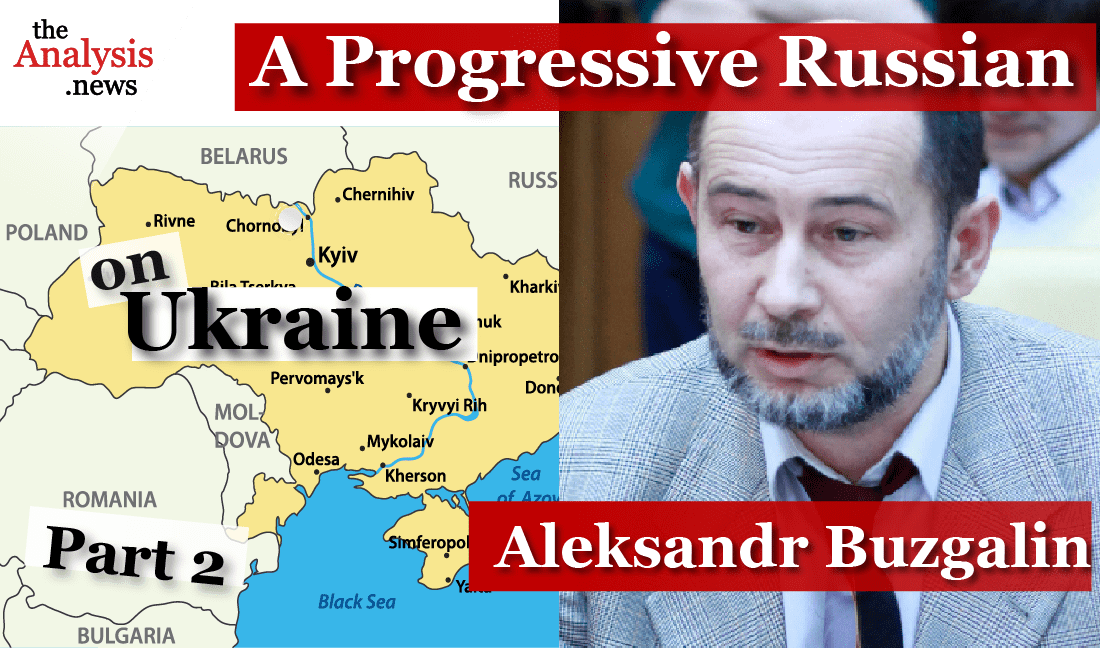
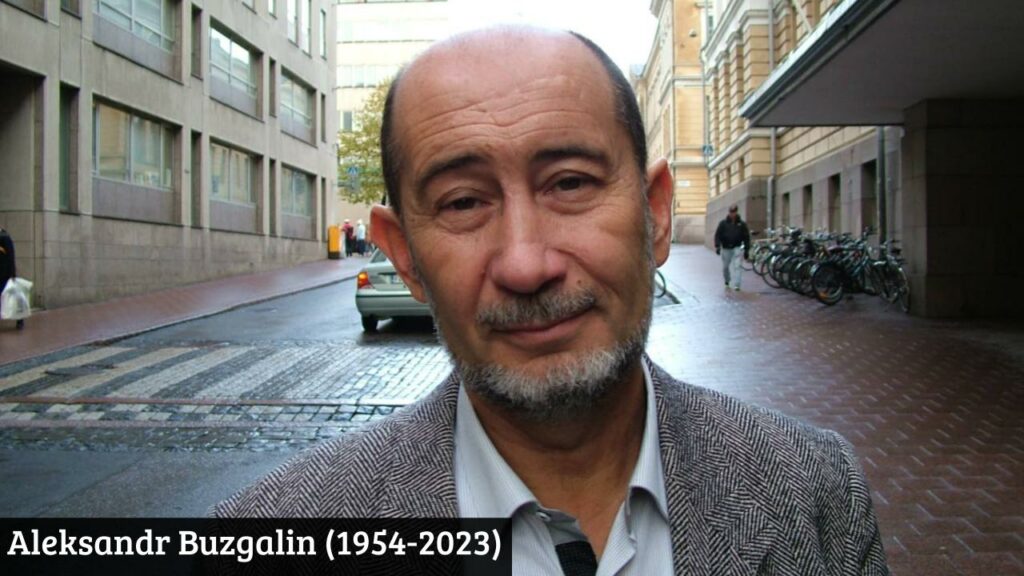

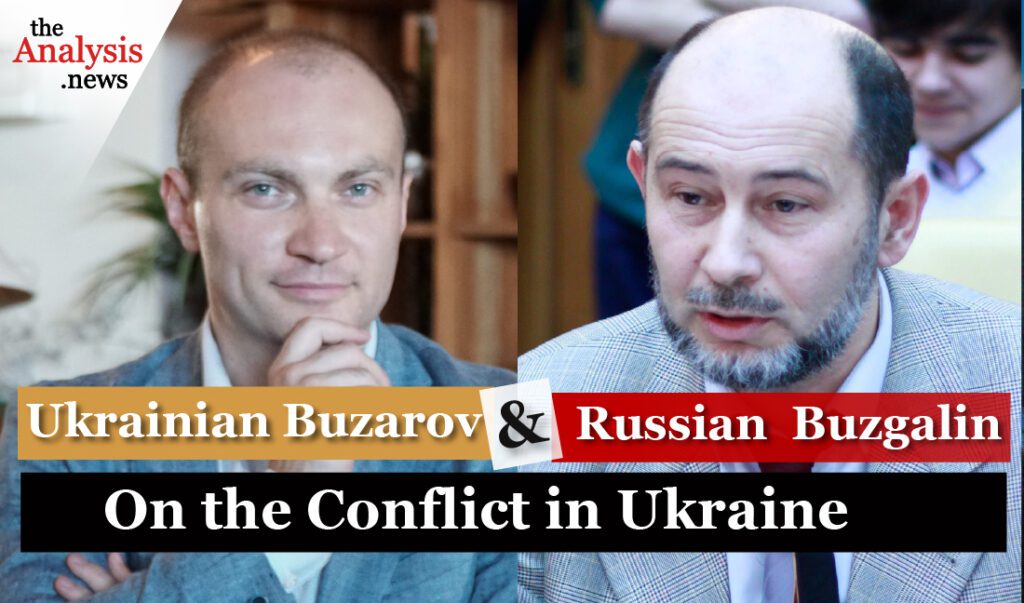
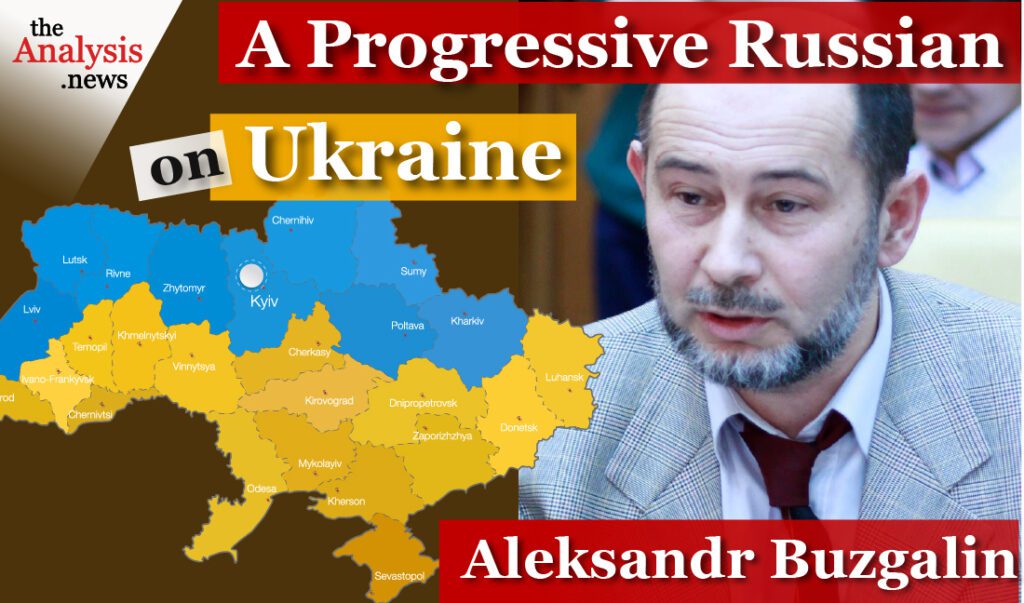
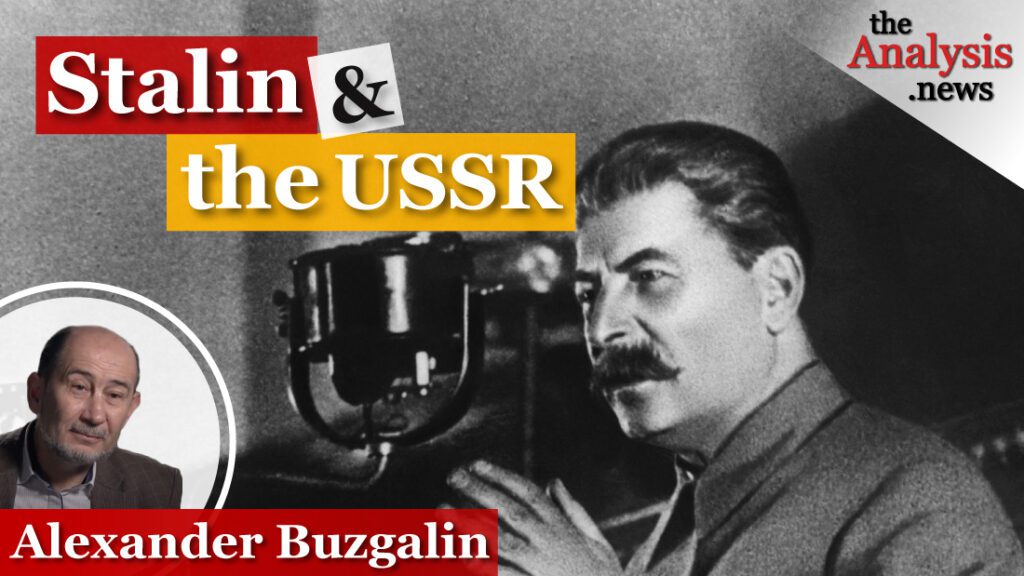
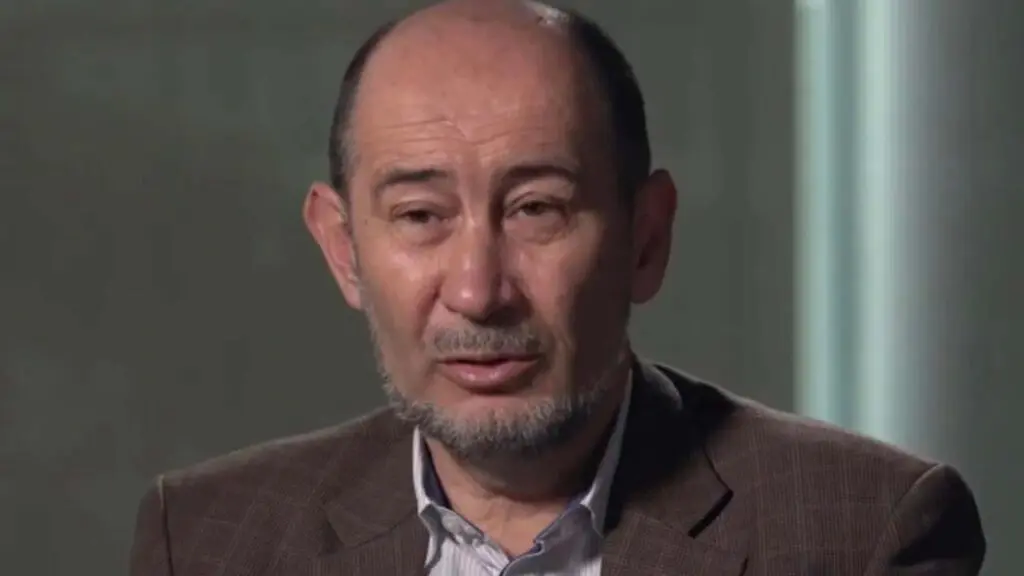

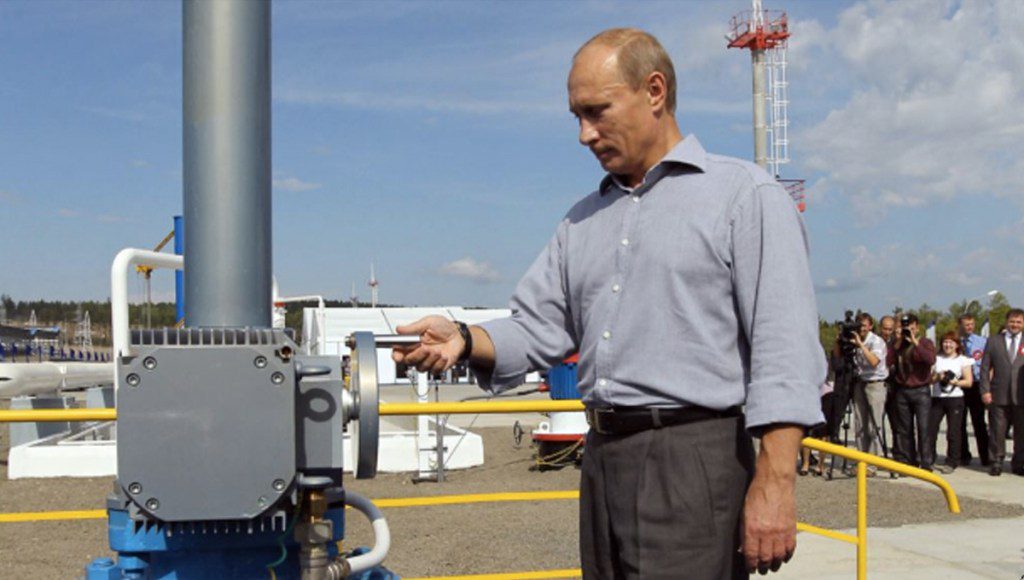
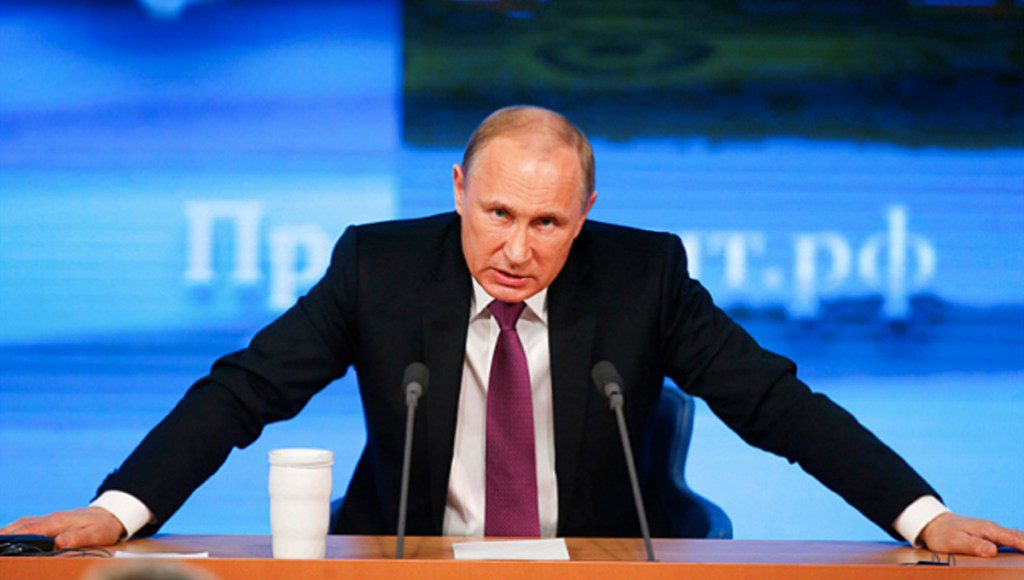

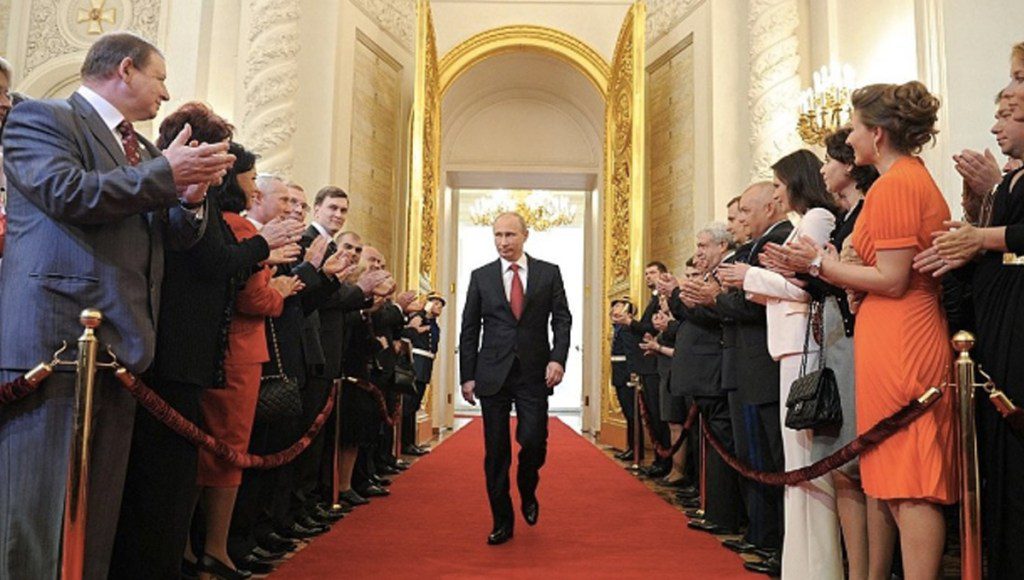
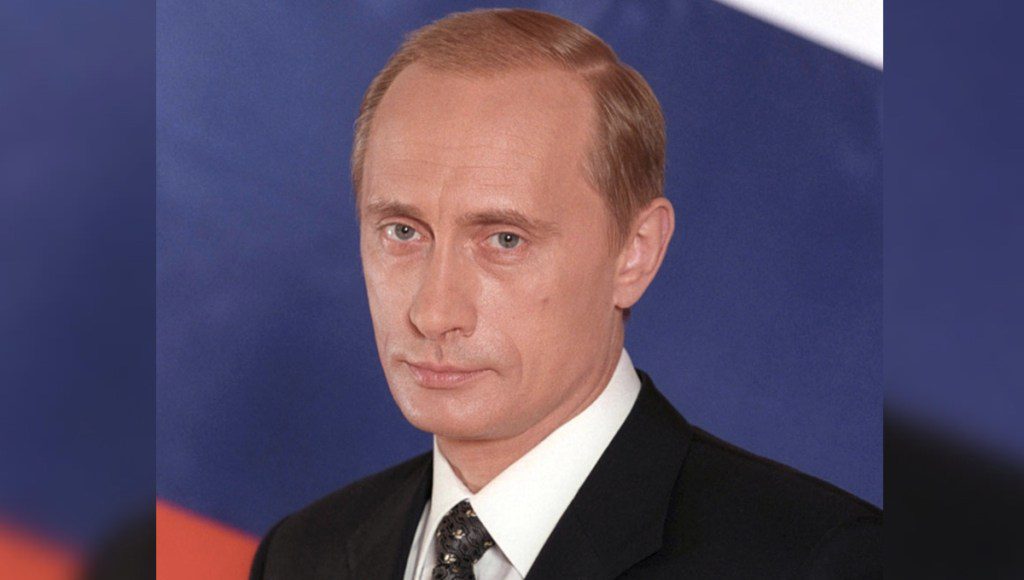
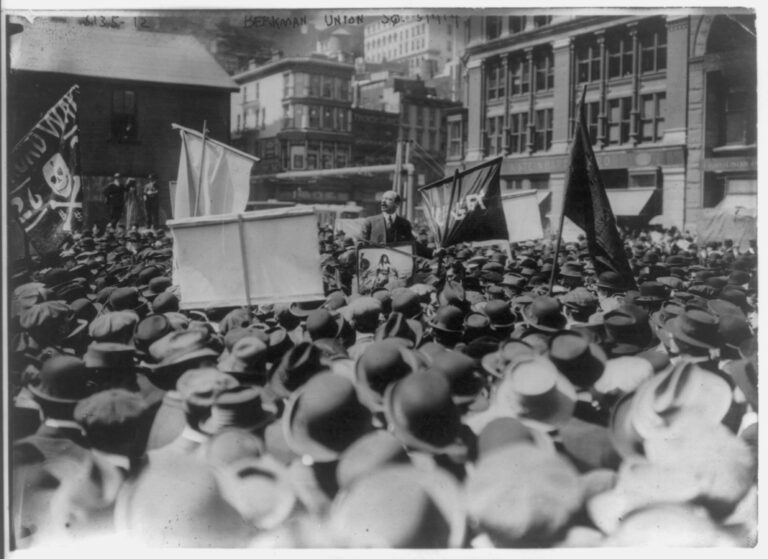
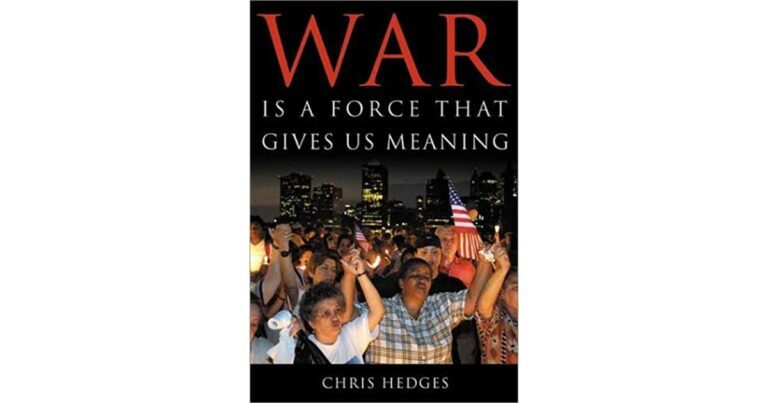
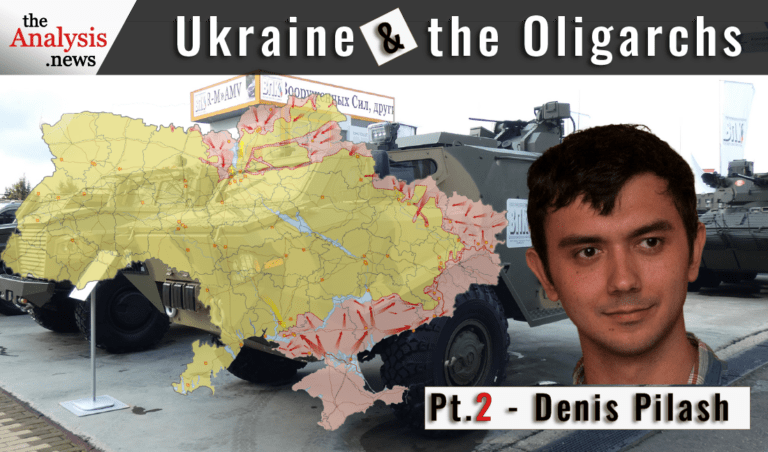

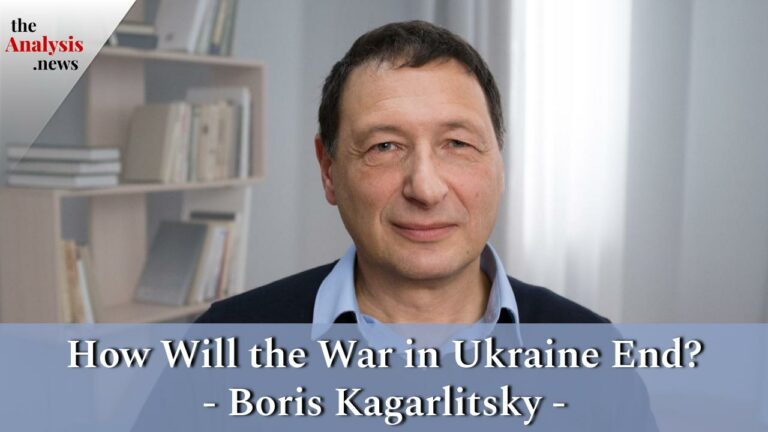

OK, call me Henry Kissinger … or well maybe not …
Here is my idea for peace in Ukraine, a compromise. Probably not perfect since it doesn’t do much for Ukraine, but for peace between NATO and Russia …
Because of American Military Industrial Complex’s pointless and aggressive insistence on NATO expansion around Russia, ( otherwise described as just picking a fight after the Afghanistan loss ) I’d imagine that Russia will not care what other countries say, and will not stop their drive into Ukraine until they have a safe and secure buffer zone around the Ukrainian part of the Sea of Azov to the East of the Dnieper River; so that even if Ukraine joins NATO they at least cannot spy or fire directly across the Sea to Russian Naval and Shipping installations.
The US has been sailing warships right up into this area where they have no real reason to be unless it is to incite the Russians.
This area is as sensitive to Russia as Cuba was to the US … and the US has a history of bad faith efforts to try to provoke and encircle Russia, i.e. placing nuclear missiles in Turkey and lying about it.
I think the deal should be struck such that the Russian ethnic areas of Ukraine with security value to Russia should be ceded to Russia in exchange for the rest of Ukraine being allowed to join NATO. This leaves access to the sea for Ukraine, allows NATO to expand, lets Russia have their buffer security zone, and seems like a fair compromise … then Biden and NATO should quit the saber rattling they are using to try to make Russia look bad, or should I say worse than they did before.
For example a Russia Ukraine border from from the city of Dnipro, Ukraine East along the 48th parallel to Russia.
Russian security is a valid concern for Russia, and the way the US and NATO dismiss Russian security only shows their ceaseless aggressive intent.
Something should be offered as a sweetener for Ukraine, but it is so full of Nazis and so corrupt … not sure what that would be? Anyway, that’s my suggestion … now, try to shoot holes in it without calling me Boris, Ivan, Putin or a Commie, because I’m not.
había dejado tres preguntas y una hipótesis pero fueron retiradas, por qué?
Please send in English. I don’t trust AI translation
thanks, Jay ok.
sorry
Will the questions I sent regarding the interview with the Russian communist intellectual not be answered because they were made in Spanish?
Thanks again
I first encountered Prof Buzgalin a few years ago on the Real News. I would suggest:
1) Future of the workplace vis-a-vis AI, robotics and Automation. He did mention it in the past but only at the end of an episode. What will this mean to employee/employer relationships, supply chains and distribution of the output or accessibility of services, work from home/offshoring (either out of or into Russia), broader economic implications?
2) Russia and China/Central Asia, the Middle East/Indian Subcontinent, also the Arctic Sea and Antarctica.
3) How he sees the space race continuing with Private Enterprise (like SpaceX), other countries (China, Japan, India) and likely territory claims and colonies on the moon, mars, asteroids with a focus on space mining and space energy sources.
Does there exist an axis between US christian nationalists and Ukrainian christian nationalists? See e.g.: https://www.aljazeera.com/features/2015/4/15/christian-talibans-crusade-on-ukraines-front-lines, https://ukrainiancrusade.blogspot.com/
I quote Mark T. Esper, former US State Secretary of Defence in his speech two years ago (February 15, 2020) at the Munich Security Conference:
“I’d like to speak to you today about the number one priority of the United States Department of Defense: implementing the National Defense Strategy.
The NDS states that we are now in an era of Great Power Competition, with our principal challengers being China, then Russia, and that we must move away from low intensity conflict and prepare once again for high-intensity warfare.” (Source: U.S. Department of Defense, https://www.defense.gov/News/Speeches/Speech/Article/2085577/remarks-by-secretary-of-defense-mark-t-esper-at-the-munich-security-conference/
I interprete this that the USA is preparing war with Russia since several years.
Hola, espero funcione su traductor a inglés. Preguntaría a A. Buzgalin:
1. ¿Es Putin parte de la élite patriota de orientación social?
2. De ser esto así, ¿Juega Putin como una ficha clave de la restaruración socialista en el mediano plazo?
3. ¿Puede el sentido histórico de los rusos y rusas diluirse en el tiempo, a tal grado que si no se logra ahora reforzar las ideas comunistas y las categorías “enajenación” conciencia de clase, etc., tendrán al desaparecer las generaciones de la Gran Guerra Patria y aquella que vivieron el Estado de Bienestar soviético, una vuelta imposible hacia el socialismo, camino al comunismo?
4. En cuanto al actual conflicto, manejo como hipótesis desde la economía política lo siguiente:
Desde una perspectiva histórico-materialista, podemos aplicar a la actual tensión entre occidente y Euro-Asia la fórmula de las contradicciones: las antagónicas, solo se resuelven por vías de hecho y violentas y las no antagónicas, mediante acuerdos y vías de concertación. Está por verse qué tipo de acento contradictorio pueden tener las tensiones entre EE.UU. – OTAN vs Federación de Rusia.
Qué opinión le merece el análisis a al luz de la visión leninista de contradicciones antagónicas y no antagónicas, el desarrollo de los eventos en el Este.
Dejo ligas del análsis.
– https://tramas.ar/2021/12/16/ee-uu-otan-vs-federacion-de-rusia-entre-contradicciones-antagonicas-y-no-antagonicas-parte-1/
– https://tramas.ar/2021/12/19/ee-uu-otan-vs-federacion-rusa-entre-contradicciones-antagonicas-y-no-antagonicas-segunda-parte/
– https://tramas.ar/2021/12/21/ee-uu-otan-vs-federacion-de-rusia-entre-contradicciones-antagonicas-y-no-antagonicas-tercera-y-ultima-parte/
gracias, muy buen espacio Jay, adelante!
posdata: un texto en honor a los bolcheviques y los comunistas
https://tramas.ar/2021/12/26/a-treinta-anos-del-desmantelamiento-de-la-union-sovietica-los-vampiros-eslavos-persisten/
Why doesn’t this site actually consider what Putin says, instead listening to one of his Russian competitors? Consider closely the following Putin remarks:
https://www.youtube.com/watch?v=loPiNhH5ViM Consider what he says and what he asks of those listening.
To recap some of his comments: Who first withdrew from the INF treaty? Does anyone know what it says? Short and medium range missiles cannot be land based. Yet these missiles have been deployed in Poland and in Romania….and no one complained. We are worried about Putin’s concern about Nato????
Does anyone know his position on the Minsk accords? Does anyone know that the Ukraine agreed to those accords?
And what about the Start treaty? Who first withdrew from it? What does Putin have to say about it? Listen to link.
Does anyone here know who has nukes? I do. Why are not all countries who have them included in a non-proliferation treaty, as Putin suggests.
Just for kicks: Is Putin a communist, a capitalist, a socialist, or just a nationalist? Is he allowed to position troops within his own borders? Is the U.S. allowed to do the same?
Does anyone know the huge cash sums that Ukraine uses to lobby U.S. politicians. Ironically, the Quincy Institute has released such a report.
Why does it appear necessary for socialist countries to be as restrictive as they appear to be with regard to television for example. My experience reflects on Cuba as an example wherein only certain businesses are/were allowed to operate, television programming was state censored/ controlled, etc. i am sure there is a logical explanation for this but can it be explained from a point of the rationale for the need for these controls in order for the system to function well for all ( if indeed there is such a need)?
(suggest you use Rumble as platform)
Q) On the idea I hear coming out of Russia that they are now ‘bulletproof’ to more US sanctions – is the economy hurting the working people? Are there popular economic justice movements growing? Is the left (perhaps his party) organizing in these movements?
It’s obvious that governments cannot regulate capitalism
for the benefit of the people & planet, so how do we
transition from global capitalism to a Marxist system
that is of, by, and for the people & planet?
We don’t.
All systems are capitalist, especially when dealing between each other.
The differences are the implementation of that capitalist system.
Fascism = Capitalism + Democracy ( the people get represented and protected
Socialism = Capitalism – Democracy ( the rich and powerful do whatever they want, pay no taxes and do not need to obey the law )
People must demand that regulation, but our rich and powerful are super-technical and scientific and have honed a technology to overthrow countries and manipulate the masses with misinformation, propaganda, lies and distraction … so unless people get wise to all this crap things will probably not change much – unless our leaders want to be benevolent, which increasingly they don’t.
Hi Paul,
Thank-you as always for your great insight and interviews. I did think of some questions for Aleksandr, many to help dispel possible myths about Russia (please pardon any ignorance):
*What is the quality of life for the average Russian? What is social welfare (pensions, medical, anti-poverty programs) like now compared to the Soviet Union?
*How heavy is censorship or repression by the Russian state against dissenting views? (for example, do you have publications like theAnalysis.news in Russia?)
*What is the perception of the United States in Russia?
*Is Russia being impacted by Climate Change and how is the gov’t responding to these changes?
*How do you view the relationship between China and Russia?
*How optimistic are you about Russia’s future?
If you are able to interview guests to enrich an understanding of Europe, China, Africa, etc that would be welcomed also (I know that you have already done so to some extent, Paul). Thank-you!
That reminds me of that old joke …
An American are Russian are arguing about which country is greater.
The American says American is great because we’re able to criticize the American government as much as we want, and if we want we can even call the President an idiot.
The Russian says … that’s no big deal, I can do the same.
If i understood right, you said lots of people from old soviet union, want soviets back. am i right?
why is Communist party in Russia so inactive?
In such society, how can a person like Alexy Novalny be treat to putin? Thank you.